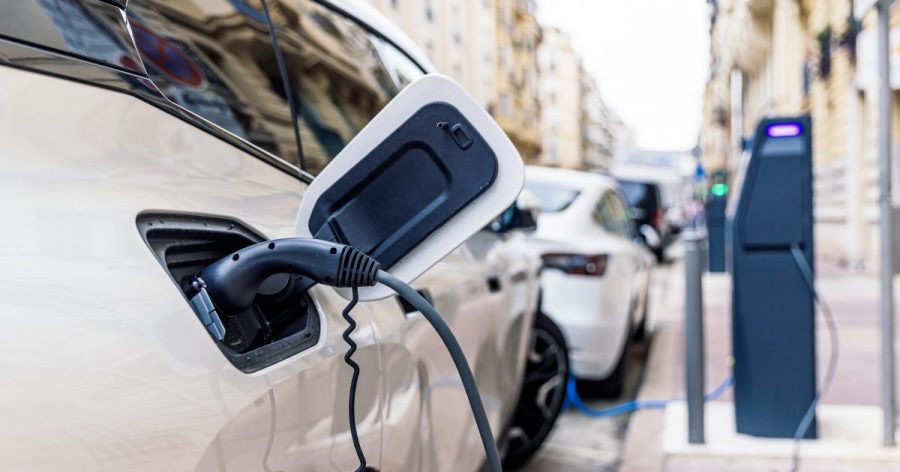Dealerships Intensify Opposition To Mandatory EV Sales

Table of Contents
The automotive industry is undergoing a seismic shift towards electric vehicles (EVs), but the transition isn't without its friction. A wave of resistance is building among car dealerships, with many intensifying their opposition to mandatory EV sales quotas imposed by governments worldwide. This growing revolt raises crucial questions about the feasibility, financial implications, and overall impact of forcing a rapid transition to electric vehicles. This article delves into the core arguments fueling this opposition and explores potential alternatives to mandated EV adoption.
Financial Concerns and Infrastructure Readiness
Mandatory EV sales present significant financial hurdles for dealerships. The high upfront costs associated with the EV transition are a major concern. Dealerships face substantial investments in several key areas:
- EV Inventory: Stocking a sufficient inventory of EVs requires a considerable capital outlay, especially given the higher price points compared to gasoline-powered vehicles.
- Charging Station Infrastructure: Installing and maintaining charging stations on dealership lots represents a significant added expense, requiring both upfront investment and ongoing operational costs.
- Specialized Tools and Training: Servicing EVs requires specialized tools and trained technicians, adding to the overall financial burden. Dealerships must invest in new equipment and employee retraining programs.
- Profitability Concerns: The profitability of EV sales remains a point of contention for many dealerships. Lower profit margins on EVs compared to traditional gasoline vehicles, coupled with higher upfront investment costs, raise serious concerns about financial viability. This is further complicated by the potential for unsold EV inventory due to fluctuating consumer demand.
These financial pressures are compounded by the uncertainty surrounding the future of the EV market and the speed of consumer adoption. The lack of uniform standards and regulations across different regions also adds to the complexity and financial risks.
Consumer Demand and Market Readiness
A core argument against mandatory EV sales is the lack of sufficient consumer demand and inadequate charging infrastructure. While EV adoption is growing, several factors hinder widespread acceptance:
- Range Anxiety: Concerns about limited driving range and the availability of charging stations remain a significant obstacle for many potential EV buyers.
- Charging Infrastructure Limitations: The uneven distribution of charging stations, particularly in rural areas, significantly limits the practicality of EVs for a substantial portion of the population.
- Geographic Disparities: Consumer awareness and acceptance of EVs vary greatly across different regions, influenced by factors such as access to charging infrastructure, electricity costs, and government incentives.
- Consumer Preferences: Many consumers still prefer the familiarity and perceived convenience of gasoline-powered vehicles.
A balanced approach is needed, combining infrastructure development with consumer education and incentives to promote EV adoption gradually, rather than imposing mandates that could harm the market.
The Impact on the Automotive Workforce
The rapid shift to EVs poses a significant threat to jobs within the automotive industry. The potential for job displacement is a serious concern for dealerships and their employees:
- Job Losses in Traditional Maintenance: The decline in gasoline-powered vehicle sales will inevitably lead to a reduction in demand for mechanics specializing in internal combustion engine repair and maintenance.
- Need for Retraining Programs: Existing automotive technicians need comprehensive retraining to acquire the skills required to service and repair EVs. The investment in these retraining programs presents a further burden on dealerships.
- EV Skills Gap: The increasing demand for EV technicians creates a skills gap, requiring a substantial investment in training and education to meet the workforce needs.
Addressing these concerns necessitates collaboration between governments, industry, and educational institutions to develop robust retraining programs and ensure a smooth transition for automotive workers.
Alternative Approaches to EV Adoption
Instead of imposing strict mandates, governments could explore alternative strategies to encourage EV adoption:
- Phased Implementation: A gradual increase in EV sales quotas would allow dealerships to adapt their operations and investments more effectively.
- Enhanced Consumer Incentives: Generous tax credits, subsidies, and other financial incentives can significantly stimulate consumer demand for EVs.
- Strategic Infrastructure Investment: Significant investment in nationwide charging infrastructure is essential to alleviate range anxiety and promote EV adoption.
- Targeted Education Campaigns: Comprehensive consumer education campaigns can increase awareness of the benefits of EVs and address common misconceptions.
A phased approach, combined with robust consumer incentives and infrastructure investment, could foster a more sustainable and less disruptive transition to a wider adoption of electric vehicles.
Conclusion
The opposition to mandatory EV sales among dealerships highlights significant challenges in the transition to electric vehicles. The financial burden on dealerships, concerns about consumer readiness, the potential for job displacement, and the need for better infrastructure underscore the complexity of this transition. Exploring alternative, more gradual approaches, such as phased implementation, increased incentives, and focused infrastructure development, offers a more viable path towards a sustainable automotive future. Understanding the complexities surrounding mandatory EV sales is crucial. Continue exploring this topic to form your own informed opinion on the optimal path towards a sustainable automotive future.

Featured Posts
-
 Cobra Kai A Detailed Look At Its Continuity With The Karate Kid Films
May 23, 2025
Cobra Kai A Detailed Look At Its Continuity With The Karate Kid Films
May 23, 2025 -
 Big Rig Rock Report 3 12 X101 5 In Depth Examination
May 23, 2025
Big Rig Rock Report 3 12 X101 5 In Depth Examination
May 23, 2025 -
 Ooredoo Qatar And Qtspbf A Long Term Partnership For Success
May 23, 2025
Ooredoo Qatar And Qtspbf A Long Term Partnership For Success
May 23, 2025 -
 Joe Jonass Mature Response To A Fan Couples Argument
May 23, 2025
Joe Jonass Mature Response To A Fan Couples Argument
May 23, 2025 -
 Photographer James Wiltshire A Decade At The Border Mail
May 23, 2025
Photographer James Wiltshire A Decade At The Border Mail
May 23, 2025
Latest Posts
-
 Jonathan Groffs Just In Time A 1960s Style Musical Triumph
May 23, 2025
Jonathan Groffs Just In Time A 1960s Style Musical Triumph
May 23, 2025 -
 Instinct Magazine Interview Jonathan Groff On Asexuality
May 23, 2025
Instinct Magazine Interview Jonathan Groff On Asexuality
May 23, 2025 -
 Just In Time Review Jonathan Groff Shines In A Stellar Bobby Darin Musical
May 23, 2025
Just In Time Review Jonathan Groff Shines In A Stellar Bobby Darin Musical
May 23, 2025 -
 Jonathan Groff On Bobby Darin Method Acting And Broadway Buzz
May 23, 2025
Jonathan Groff On Bobby Darin Method Acting And Broadway Buzz
May 23, 2025 -
 Jonathan Groffs Just In Time A Night Of Broadway Camaraderie
May 23, 2025
Jonathan Groffs Just In Time A Night Of Broadway Camaraderie
May 23, 2025
